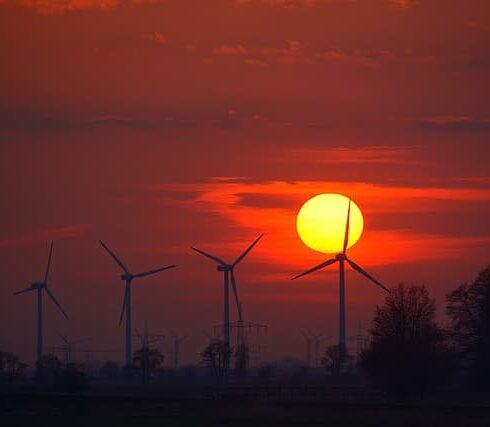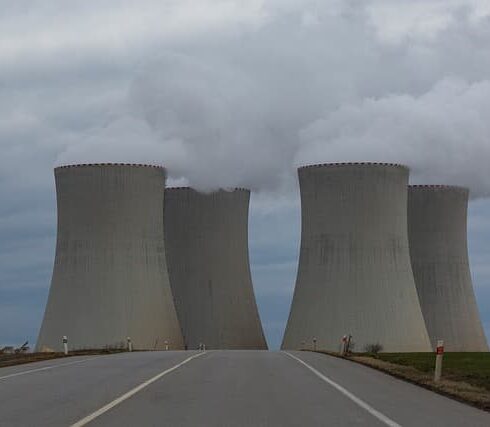Environmental Pollution
Environmental pollution is one of the most serious challenges of the 21st century. This issue affects not only the global scale but also the local level — including the Czech Republic, where the consequences of pollution impact human health, the quality of water and air, and the state of nature. The sooner we start acting systematically, the more chances we have to preserve resources and ecological balance.
Main forms of pollution and their impact
Environmental pollution manifests in various forms: air, water, and soil pollution. Each of these types harms ecosystems and directly affects the quality of human life.
Air pollution is one of the most visible and dangerous forms. In the Czech Republic, it is especially noticeable in areas with heavy traffic and near industrial facilities, such as Ostrava. The main sources are transportation, heating systems, factory emissions, and coal burning. According to the European Environment Agency, the concentration of particulate matter PM10 and PM2.5 often exceeds acceptable levels, which negatively affects the respiratory and cardiovascular systems.
Water pollution remains a serious problem. Despite efforts to modernize wastewater treatment plants, Czech rivers and lakes continue to suffer from sewage, agricultural chemicals, and industrial discharges. Excessive levels of phosphates and nitrates cause algae blooms and destroy the natural balance, killing aquatic flora and fauna.
Soil pollution in the Czech Republic is primarily linked to intensive agriculture and industrial activity. Heavy metals, fertilizer residues, and petroleum products make the soil less fertile and potentially dangerous for food production. The problem is especially acute in regions with outdated industrial sites and illegal landfills.
Roots of the problem: from transport to lifestyle
The causes of environmental pollution are diverse. One of the main ones is dependence on fossil fuels and excessive resource consumption. Despite the spread of electric vehicles and alternative energy, cars remain the main mode of transportation for most Czechs. And coal- and gas-fired power plants still provide a significant share of the country’s energy.
Another important factor is the level of environmental awareness among the population. Although educational programs are implemented in Czech schools, environmental culture among adults still needs improvement. Waste sorting, rejecting single-use plastic, and mindful consumption — these basic steps are still not habitual for many.
Rapid urbanization and rising consumption also worsen the situation. One person in the Czech Republic generates hundreds of kilograms of waste annually, most of which consists of packaging and plastic that cannot be recycled. All of this requires systemic changes both at the infrastructure level and in everyday practices.
Consequences of pollution: a threat to people and nature
Pollution has far-reaching effects on public health. According to expert estimates, over 10,000 premature deaths in the Czech Republic each year are linked to poor air quality. Harmful particles that enter the body can cause chronic diseases, including asthma, strokes, and cardiovascular conditions.
Nature is also under severe stress. Animals and plants lose their natural habitats, key species disappear, and ecosystems are disrupted. Water and soil pollution reduce biodiversity, which affects not only nature but also food security and agriculture.
Global consequences include accelerated climate change, an increase in extreme weather events, and population migration forced by pollution or water scarcity.
What is being done in the Czech Republic
Despite the challenges, the Czech Republic is actively fighting pollution. The country has implemented several laws and initiatives aimed at environmental protection. In 2024, a ban on certain single-use plastic items, including tableware, straws, and bags, came into effect. A deposit system for plastic bottles and aluminum cans is also being introduced, which should improve recycling rates.
Government measures are supported by business efforts. Many Czech companies are switching to eco-friendly technologies, implementing resource reuse systems, and reducing emissions. Startups in the “green” tech sector, including recycling, energy efficiency, and environmental monitoring, are especially active in this direction.
Citizen participation in environmental initiatives is also growing. More people are sorting waste, choosing local farm products, and refusing unnecessary packaging. City residents are maintaining the cleanliness of public spaces and joining campaigns for nature cleanups and animal protection.
Personal contribution: steps available to everyone
While government programs play a key role, much also depends on individual behavior. Even small actions can have a significant impact when they become habits.
Sorting waste, using reusable bags, reducing water and electricity consumption — all of this is within everyone’s reach. Refusing excess plastic and preferring local products help reduce greenhouse gas emissions related to transportation.
There is a positive trend in the Czech Republic: interest in an eco-friendly lifestyle is growing, infrastructure for sustainable consumption is developing, and zero-waste stores and farmers’ markets are emerging. All of this lays the foundation for a healthier and more balanced future.
Conclusion
Environmental pollution is a real threat that requires a collective response. The Czech Republic is already taking serious steps toward sustainable development, but much remains to be done. Only a combination of legislative measures, technological innovation, and environmentally responsible behavior from citizens can deliver lasting results.
Clean water, air, and land are not a privilege but a necessity. And each of us can contribute to preserving these values for future generations.





